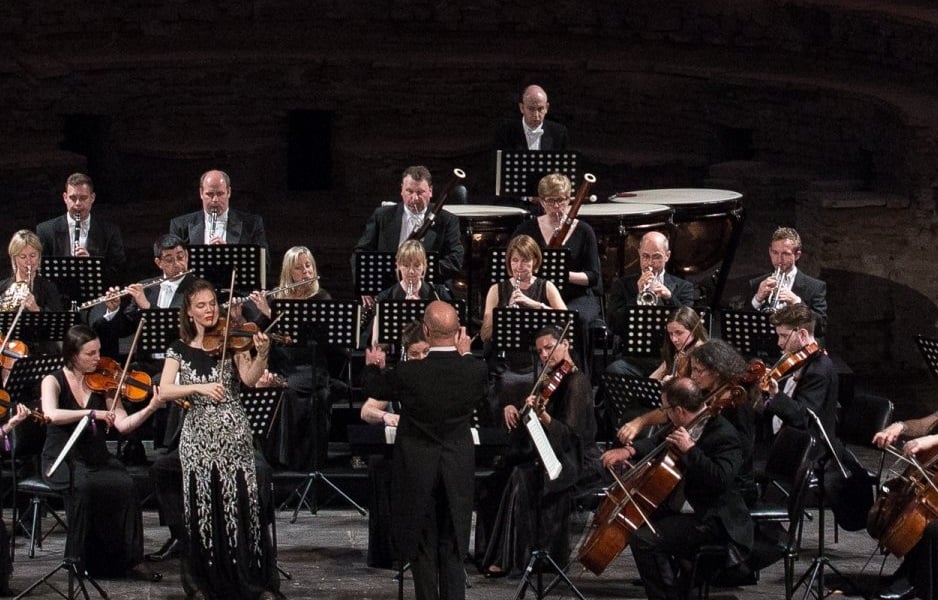
A winning formula
The Orchestra of the Swan has found a formula for boldly commissioning new works that pleases both composers and audiences. David Curtis explains his approach.
Orchestra of the Swan (OOTS) has given over 70 premieres in the past ten years, and if we include projects with music students the total number of new works we have performed is over 200.
Composers have a key advocacy role in engaging with audiences and speaking passionately about their own music
It’s essential to take audiences on our journey. Iin Stratford upon Avon we’ve developed a loyal audience over many years. I fondly remember saying to one follower that I hoped she was going to enjoy the evening. She replied: “David, I’m not here to enjoy myself – I want to learn something.” That’s an unusual, if encouraging, reply, but the more we give context to new and less familiar repertoire, the more likely both audiences and musicians can ‘follow the story’.
Local context
This context extends to our international touring too. On a recent tour to Mexico, audiences had no problem enjoying Alejandro Basulto’s commission ‘Jig Variations’, a new work using contemporary dance rhythms, giving immediate context and relevance to our Mexican audiences.
When commissioning work with other orchestras, I am also mindful of local context. So when the North Hungarian Symphony Orchestra suggested I include a commission for its 2018-19 season, I invited American composer Peter Lieuwen as he is passionate about incorporating folk idioms into his music. Our programme will include the Kodaly Peacock Variations, Copland Rodeo and Peter’s new work, reflecting and drawing on folk traditions from both countries.
Relationships with composers
I’m convinced that great performances depend on good relationships with composers, so we aim to strike the right balance between inviting new ones and nurturing existing relationships.
This year we are celebrating our twenty-first anniversary by commissioning four concertante works, giving the spotlight to our principals. We chose to work with composers we had previously commissioned (Doug Cuomo and Paul Moravec from the US and Joanna Lee and Julian Philips from the UK) who knew and understood our players. We paired each commission with an existing work of the same orchestration and soloists, which meant giving the composers a specific brief.
Writing to a brief
I asked Doug and Joanne how they found writing for a specific brief in this way.
Doug: “I like it. Since composing is essentially a process of a series of decisions, from large (what instruments?) to minute (staccato for this semiquaver or not?), it makes things easier in the sense that some decisions are made for you. Rather than being restrictive I find it freeing that some parameters are set, and then you work within them, creating things you wouldn’t have otherwise.”
Joanna: “There might be the assumption that composing to a specific brief is restrictive, but I have found certain restrictions helpful. Without any boundaries, I find myself like a child in a sweet shop, not knowing what to pick and grappling with too many exciting choices.”
What is it like writing for an orchestra when you know the players, soloists and conductor?
Doug: “It’s nice to have a sense of who you are writing for. OOTS commissioned me a few years ago, so I had a sense of the enthusiasm and quality of the players and of the conducting. I spoke directly with Hugh Davies, the trumpet player, about his solo in the second movement and wrote with him in mind. I tried to give him some lyrical playing to really dig into, which he did.”
Joanna: “Working with particular musicians means you can compose tailor-made pieces. One hopes this will lead to a piece that is of greater enjoyment and fulfilment but is a greater success overall. In this context, you usually get to work in close collaboration with the musicians, which as a relatively young composer is extremely helpful as you learn more about the instruments.
“I never grow tired of hearing my music brought to life by brilliant musicians – a privilege and thrilling experience, and each time you learn something new.”
Engaging with audiences
I think it’s essential that composers engage with our audiences: pre-concert talks, live illustrated introductions, chatting in the interval and a drink in the bar after the concert.
Composers have a key advocacy role in engaging with audiences and speaking passionately about their own music. We’ve been fortunate enough to work with Dobrinka Tabakova on many occasions and listening to her talk about her own music with eloquence and passion is a privilege.
The challenge and opportunity to work with composers and to perform new work reminds me that all music should be performed with the same freshness. Programming new work presents great opportunities and juxtaposing it with Mozart, Bach, Haydn and Dittersdorf refreshes our approach and our audiences’ appreciation of these masterpieces.
David Curtis is Artistic Director and Principal Conductor of Orchestra of the Swan.
www.orchestraoftheswan.org
Tw @Orchestra_Swan
To learn more about OOTS’ approach, watch these videos on Doug Cuomo’s work and Paul Moravec’s work.
Join the Discussion
You must be logged in to post a comment.